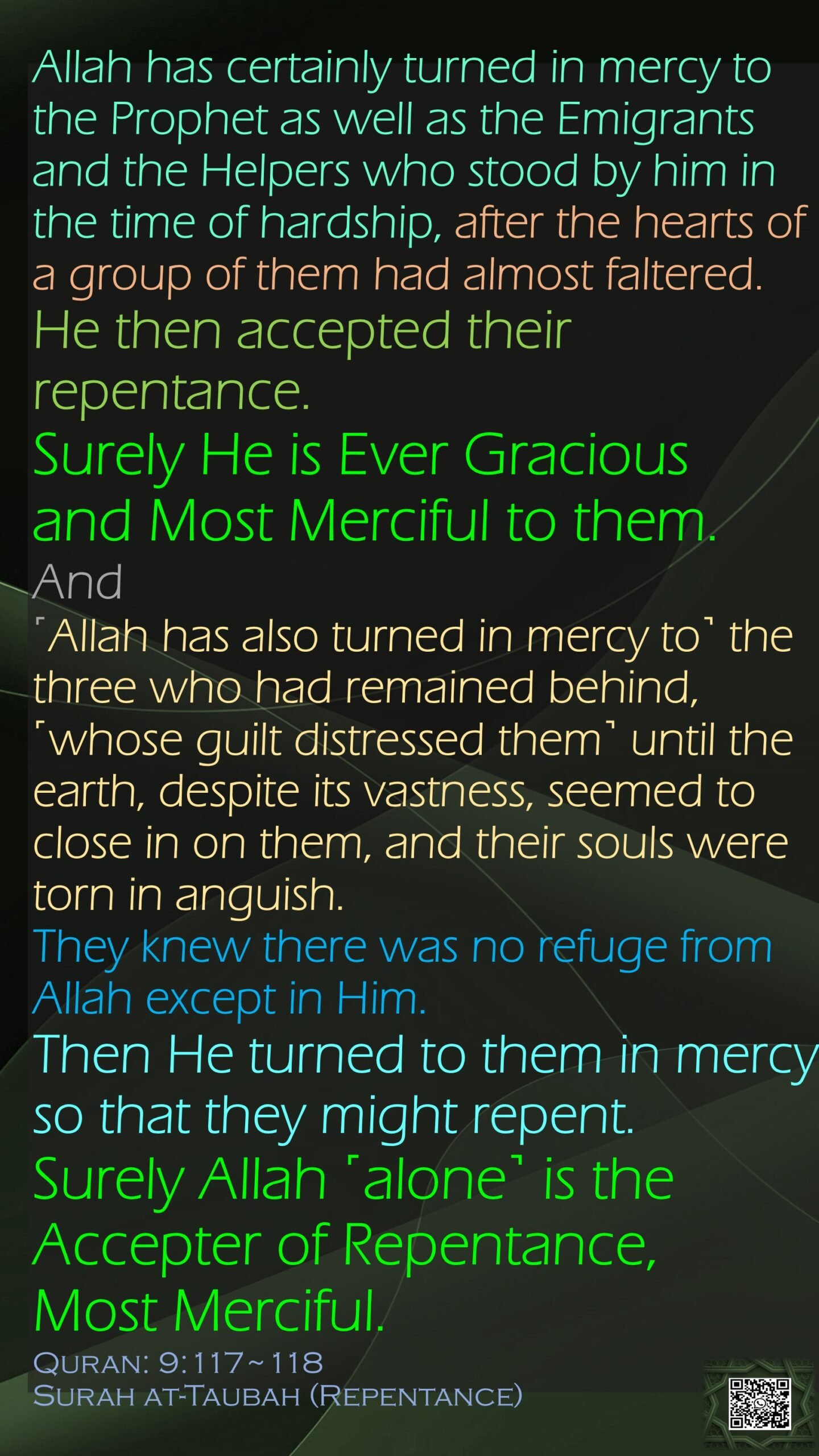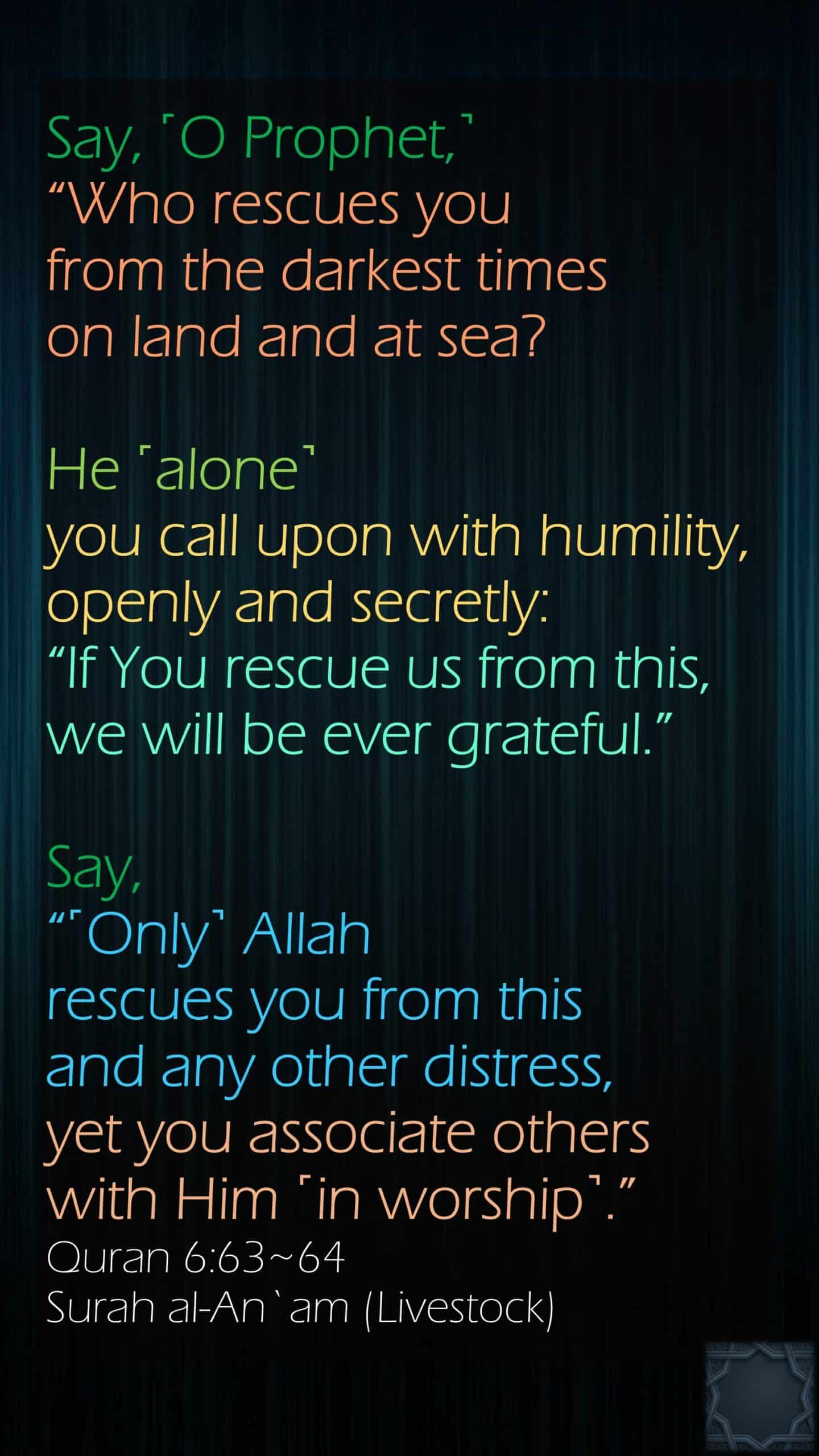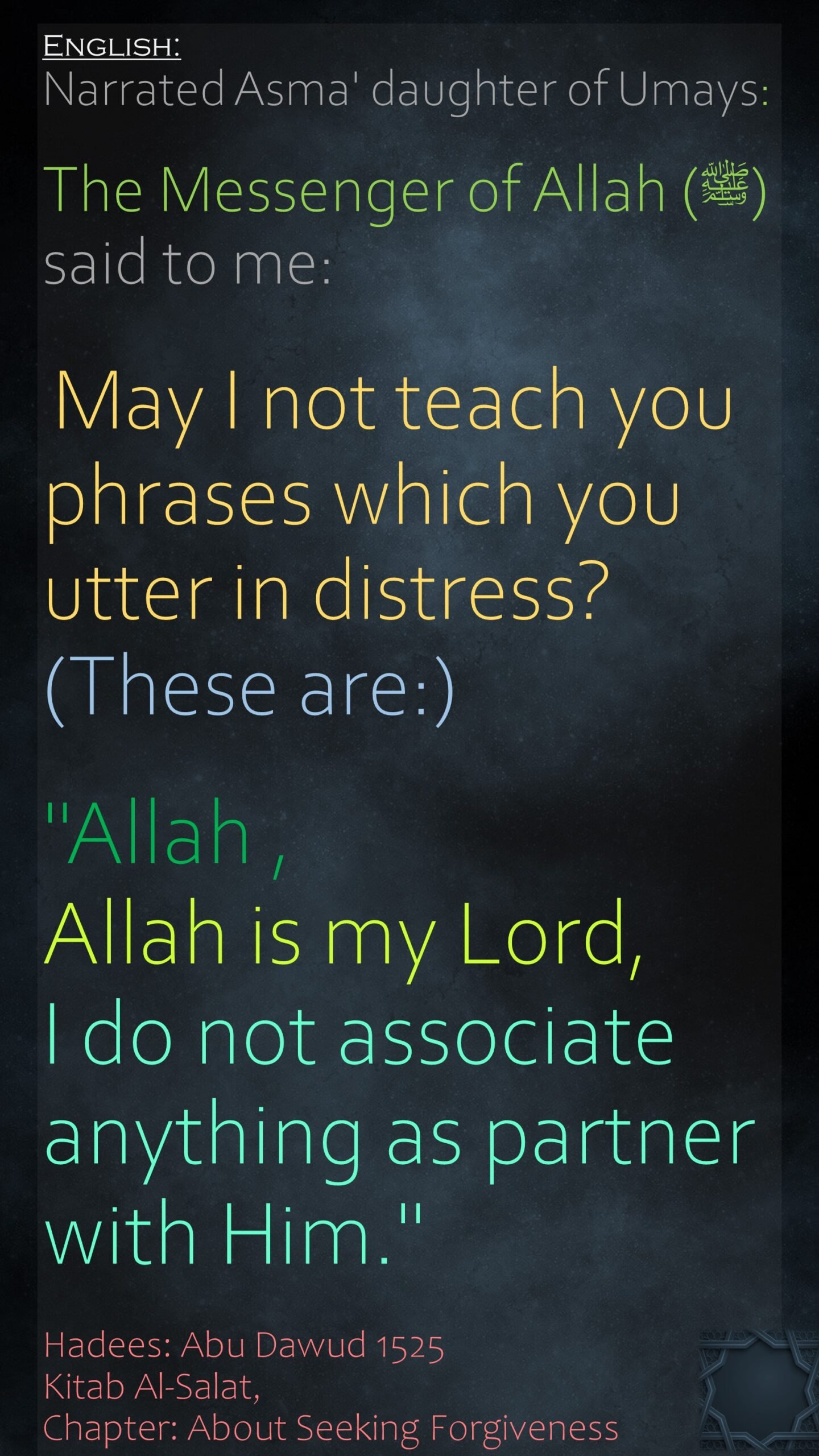25
Jun, 2025
14
Feb, 2025
Hadees: Tirmizi 3524
Hadees, Islam 3524, Allah, daily, distress, frequently, Greatest Name of Allah, Hadees< Tirmizi, honor, inspirations, islam, islamic, Ism-e-Azam, Majesty, Mercy, Muhammad, recite, relief, seek, Self Sustainer, supplication, tirmidhi, يا حي يا قيوم برحمتك أستغيث, يا ذا الجلال والإكرام
8
Dec, 2024
Quran 20:2~6
Islam, Quran 002, 003, 004, 005, 006, 020, Allah, awe, ayat, belong, daily, distress, earth, establish, Heaven, inspirations, islam, islamic, Most Compassionate, Muhammad, quran, sin between, Ta Ha, Ta-Ha, throne, underground
9
Nov, 2024
Quran 6:63~64
Islam, Quran 006, 063, 064, al-An'am, Allah, alone, associate, ayat, call, daily, dark, darkest times, distress, grateful, humility, inspirations, islam, islamic, land, Livestock, Muhammad, open, openly, others, quran, rescue, sea, secret, secretly, Surah, ungrateful, worship
16
Oct, 2023
Quran 21:87~88
Islam, Quran 21st Chapter, al-Anbiya, Allah, ayat, daily, depth.darkness, difficulty, distress, Faith, Glory, grip, inspirations, islam, islamic, Jonah, La ilaha, lā ilāha illā anta sub'ḥānaka innī kuntu mina l-ẓālimīn, no god except Allah, power, pray, Pristine, punish, pure, quran, realize, relieve, remember, repent, rescue, supplicate, supplication, Surah, The Prophets, verse 87, verse 88, whale, wrondoer, yunus
9
Dec, 2022








